I suspect that Metamorphosis is a love it or hate it episode for many, as it has a very different vibe than most of the other episodes.
It begins with Kirk, Spock, McCoy and Assistant Federation Commissioner Hedford in the shuttlecraft Galileo (wait, didn't that burn up at the end of The Galileo Seven?) when a strange cloud pulls them off course and down to a small world which Spock describes like this:
Gravity is similar to Earth. Most unusual in view of its size. The bulk of the body seems to be iron and nickel. More than an asteroid. Like a small planetoid, I should say.It is too bad the term 'dwarf planet' hadn't been invented yet, as this would have been a perfect use for it. Oh, well.
 | |
| "You're all astronauts, on some kind of star trek." |
Cochrane tells them that the age of 87 he headed out into space to die, but was brought to this
Spock decides to check out the shuttlecraft when the cloud comes to pay him a visit. Being the curious guy that he is, he decides to touch it. The cloud gives him a sizable electric shock and messes with the shuttle.
Cochrane tells them that the cloud, which he calls The Companion, will not let them leave. It has made some sort of power dampening field which keeps things from working.
None of this is good news for Commissioner Hedford who needs medical treatment on the Enterprise to keep her from dying, but if the cloud rejuvenated Cochrane, maybe it can cure the Commish too.
Cochrane can call The Companion, and communicate with it on a non-verbal level. Alas, it can't help Hedford. As The Companion communicates with Cochrane both Kirk and McCoy are convinced that it loves Cochrane.
Kirk really wants to get off this
Which doesn't work out so well.
So if fighting wont work, Kirk actually has to resort to talking with the intelligent creature. He gets Spock to working on adding an Intelligent Cloud Mode to the Universal Translator.
In spite of the fact that power systems don't work here, Kirk takes his
The conversation turns to The Companion's feelings about The Man and Cochrane doesn't exactly react well to the conclusions that everybody draws about their relationship.
Cochrane: I don't understand.Yes, Mr. Cochrane. This is what the future holds. It is called tolerance, acceptance and understanding. It is a realization that all of us are equal and that in this case, love is universal. It doesn't matter if you are The Man and an intelligent alien cloud, because it is okay. It is even okay with humans that don't fit the traditional roles. This was still one season before the big moment of TV's first interracial kiss where Kirk and Uhura are forced to kiss. To me this is a bigger deal and another example of how Star Trek has some big things to say for all of us.
McCoy: You don't? A blind man could see it with a cane. You're not a pet. You're not a specimen kept in a cage. You're a lover.
Cochrane: I'm a what?
Spock: Her attitude when she approaches you is profoundly different than when she contacts us. Her appearance is soft, gentle. Her voice is melodic, pleasing. I do not totally understand the emotion, but it obviously exists. The Companion loves you.
Cochrane: Do you know what you're saying? For all these years, I've let something as alien as that crawl around inside me, into my mind, my feelings.
Kirk: What are you complaining about? It kept you alive.
Cochrane: That thing fed on me. It used me. It's disgusting.
McCoy: There's nothing disgusting about it. It's just another life form, that's all. You get used to those things.
Cochrane: You're as bad as it is.
Spock: Your highly emotional reaction is most illogical. Your relationship with the Companion has for one hundred and fifty years been emotionally satisfying, eminently practical, and totally harmless. It may indeed have been quite beneficial.
Cochrane: Is this what the future holds? Men who have no notion of decency or morality? Maybe I'm a hundred and fifty years out of style, but I'm not going to be fodder for any inhuman monster.
Even the dying Commissioner Hedford gets it. She is mystified that Cochrane rejects love when she has never known love.
Kirk talks again to The Companion about The Man and love. He tries to get her to let him go but instead convinces her that she can't really love him unless she is human.
Here's where something odd happens. Recall that The Companion can't make Commissioner Hedford better, but all of a sudden it instead becomes one with her and in the process cures her in a way that we really shouldn't think about.
The Companion gaves up immortality for both herself and The Man in order to be able to even have a chance at real love with him.
Cochrane hasn't seen a woman in 150 years, so it doesn't take him too long to come around. With her in human form they decide to stay on the
The episode was directed by Ralph Serensky, who has written a very nice blog post about it that you should read. He did some great things giving a sense of space on the set (which he discusses on his blog), he also had a great visual sense for grouping the actors on the set. This is just one example:
This was the first of several Trek episodes to get a musical score by George Dunning, who wrote just over 30 minutes of music for this episode. Like the episode, the score has a different feel to it, but it is good stuff. As I've mentioned before, all of it is available in the wonderful complete release of all the music from the original Star Trek from La-La Land Records.
You can watch Metamorphosis online at Star Trek.com.
Next up is Friday's Child.
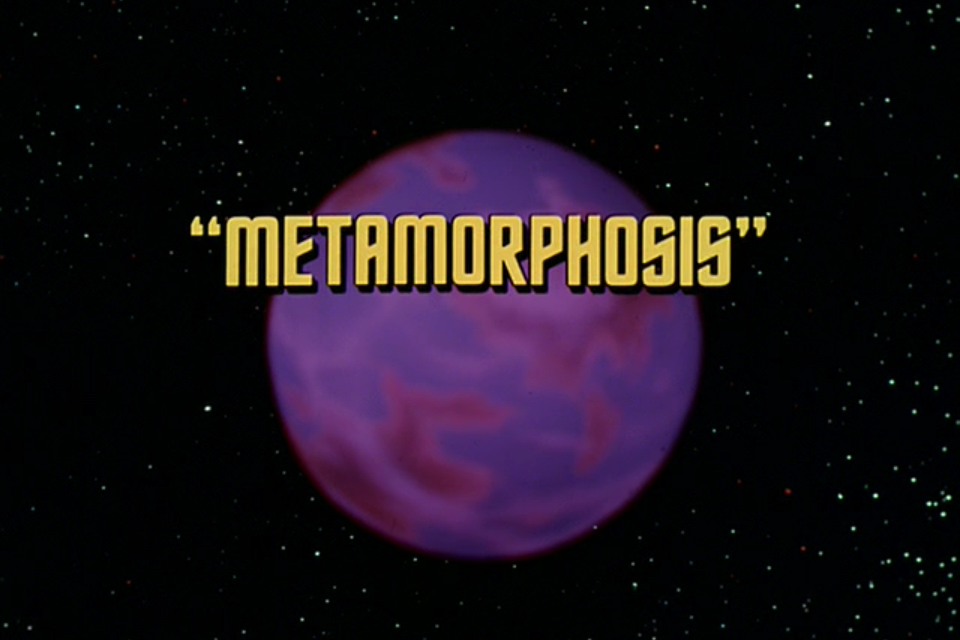
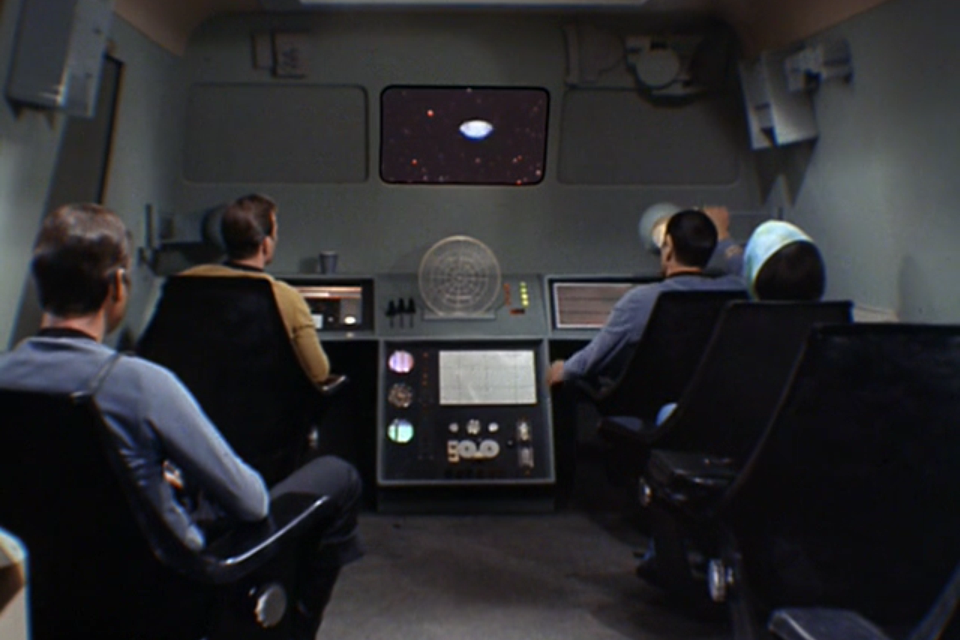

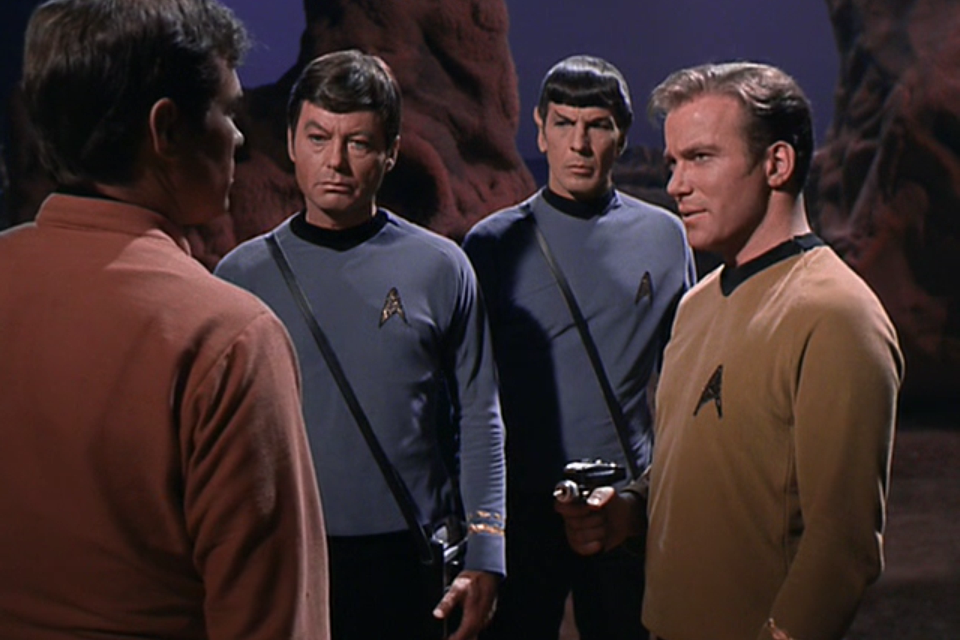
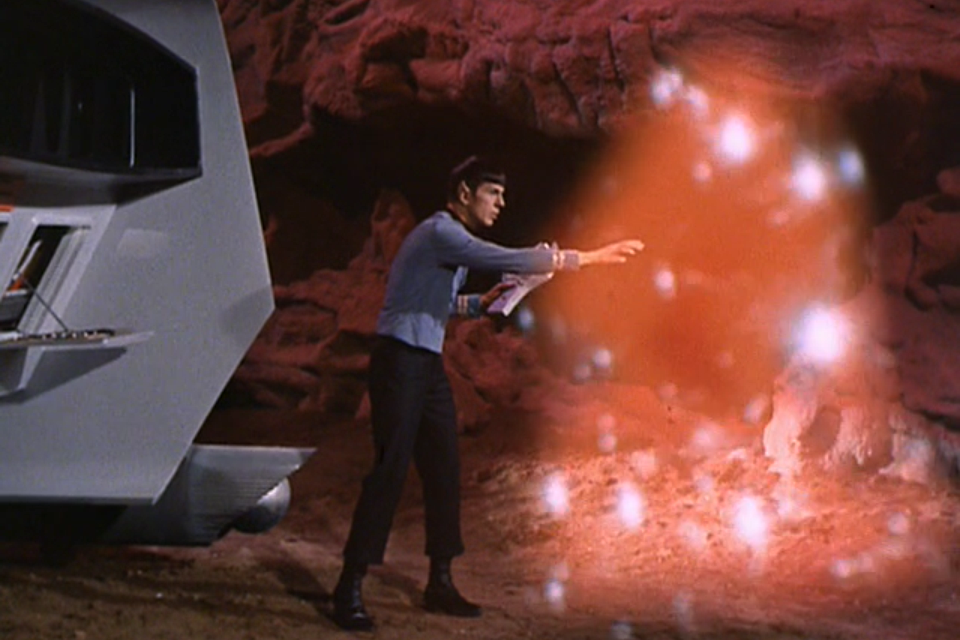
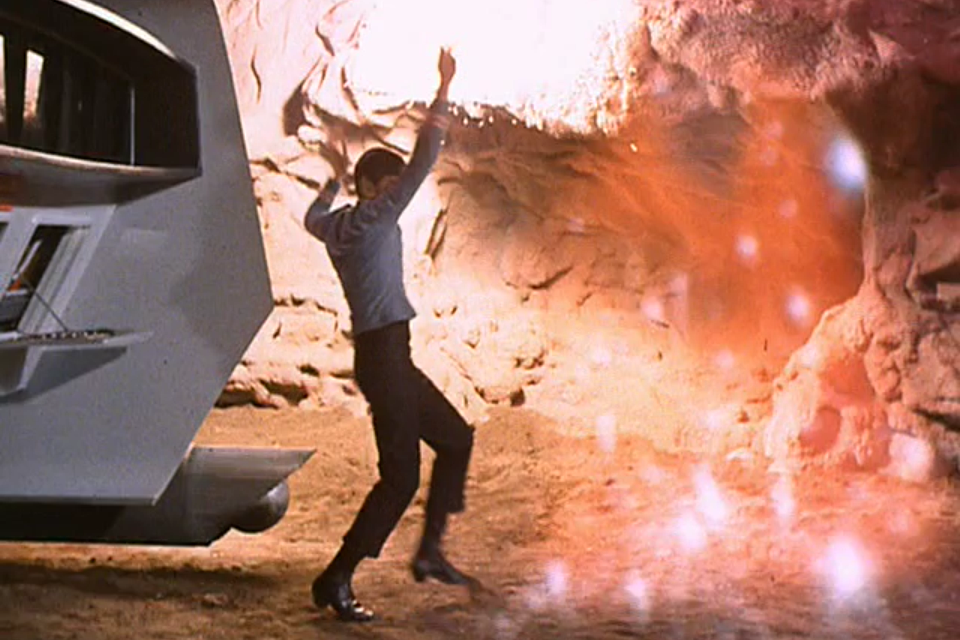
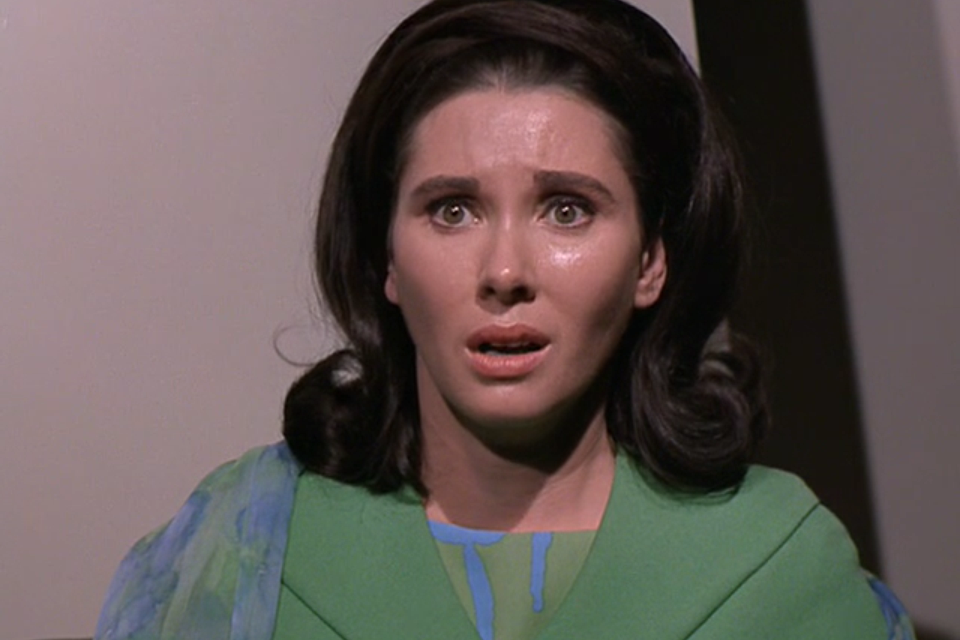
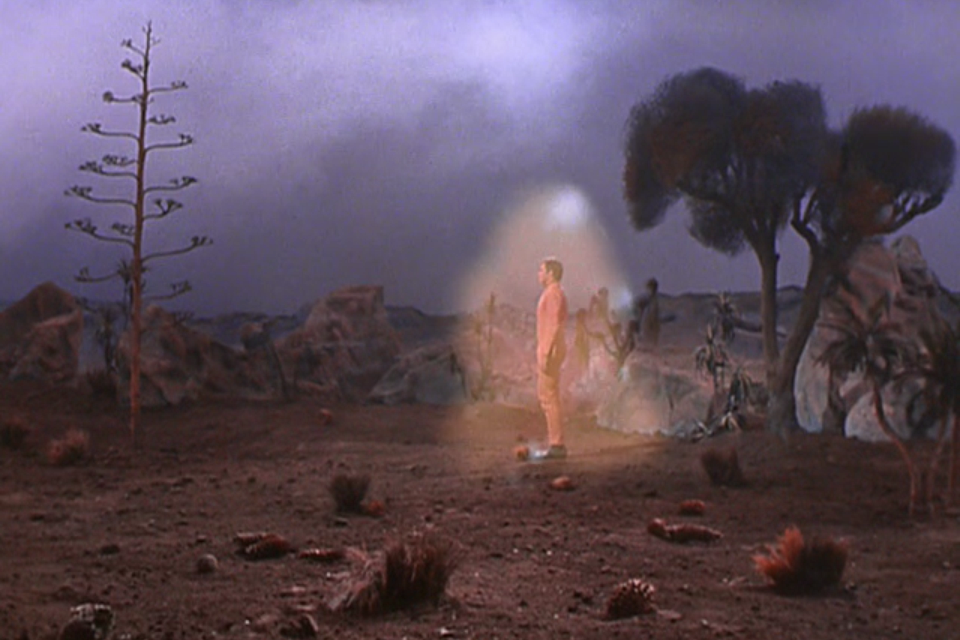
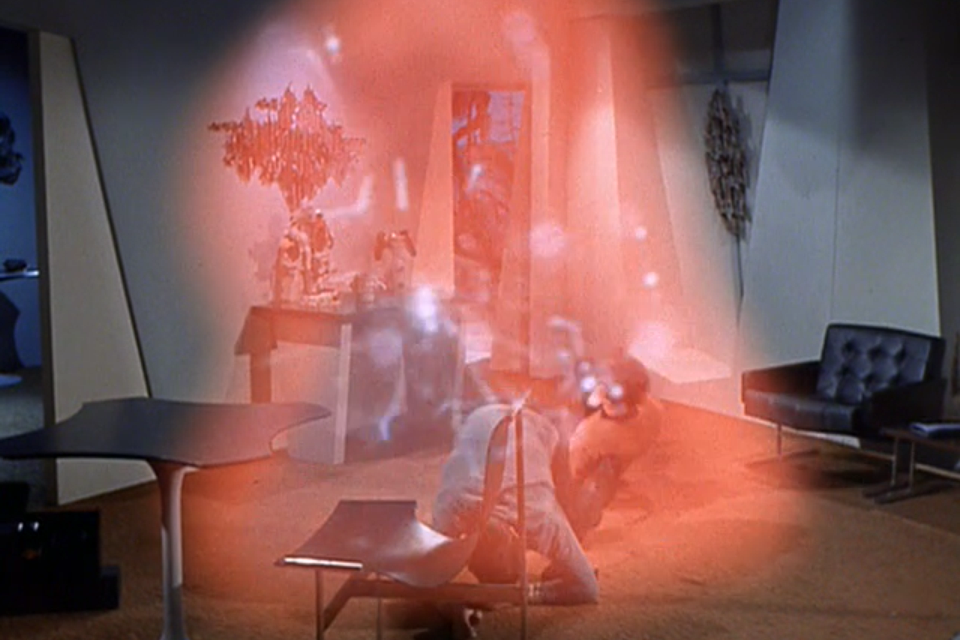
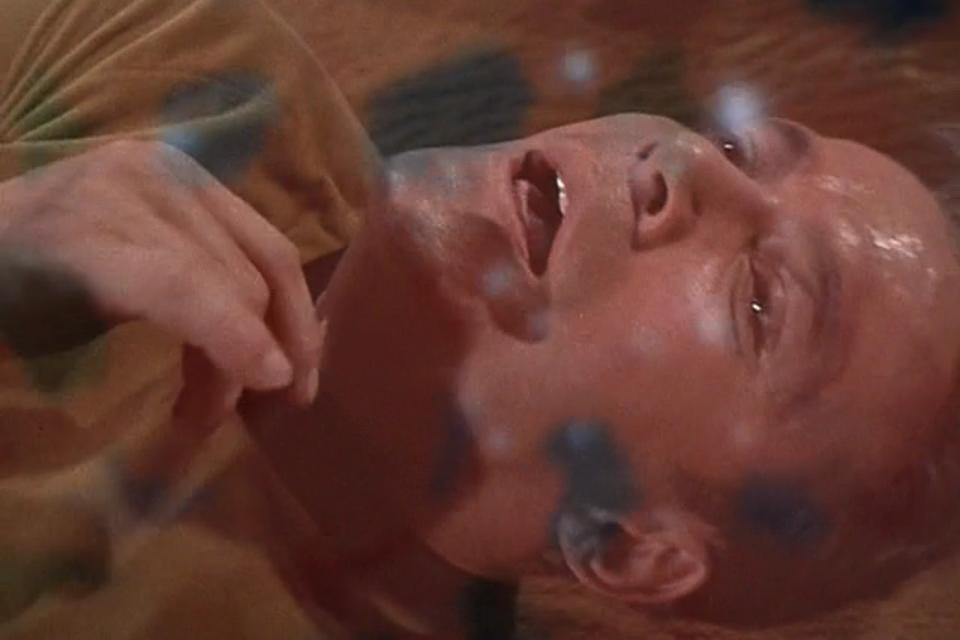
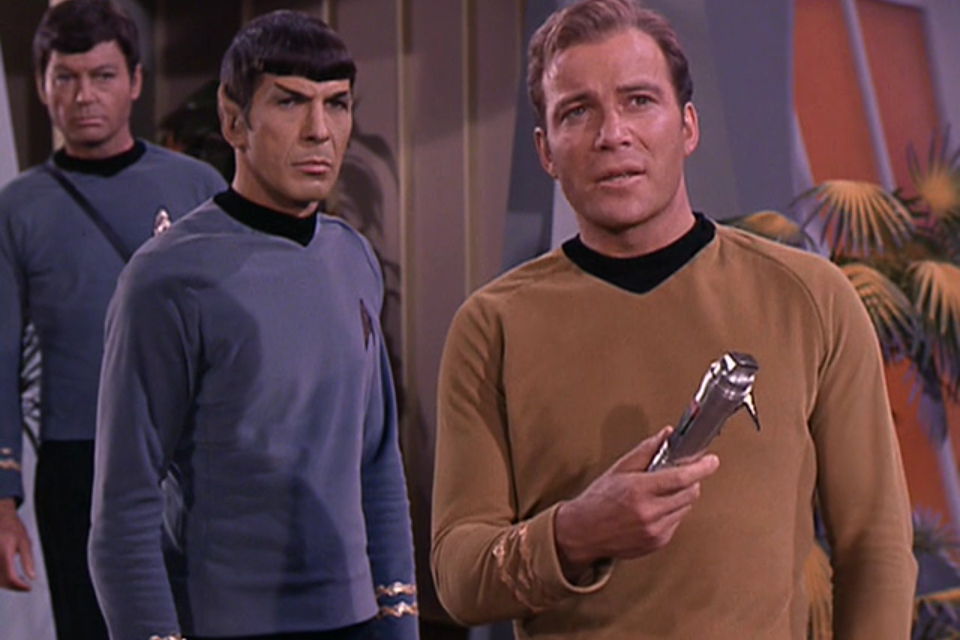
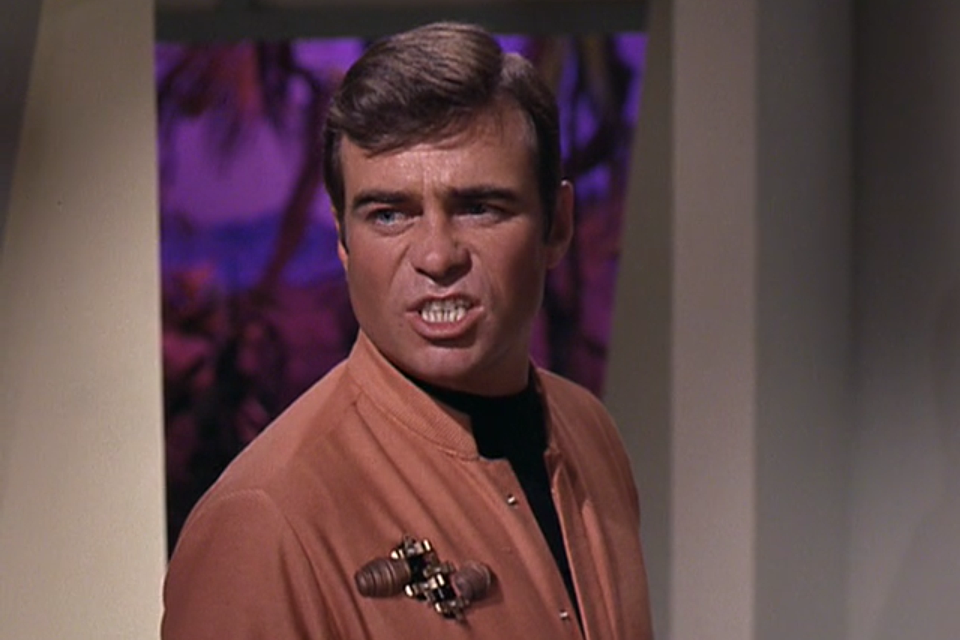
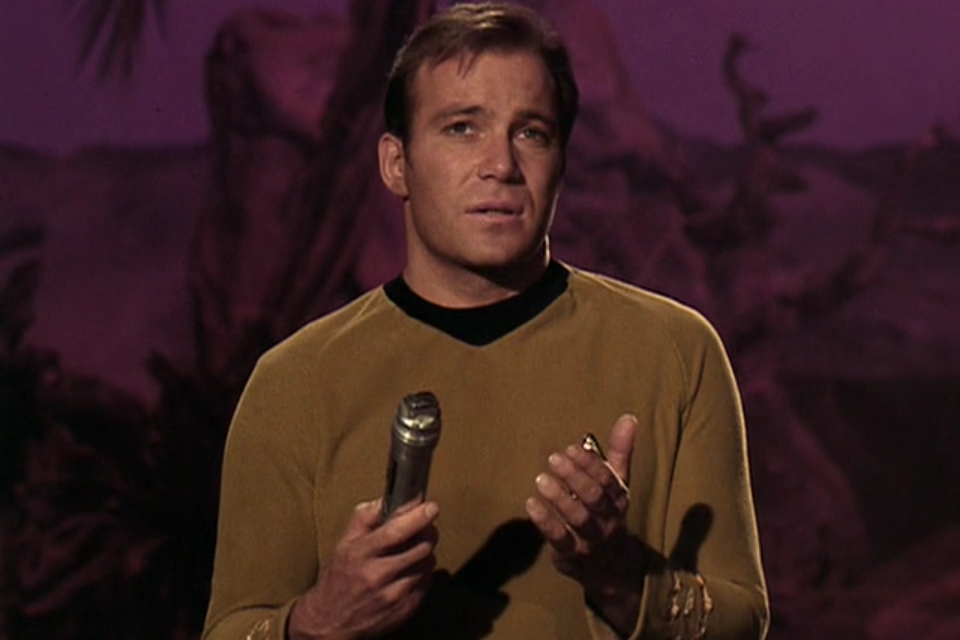
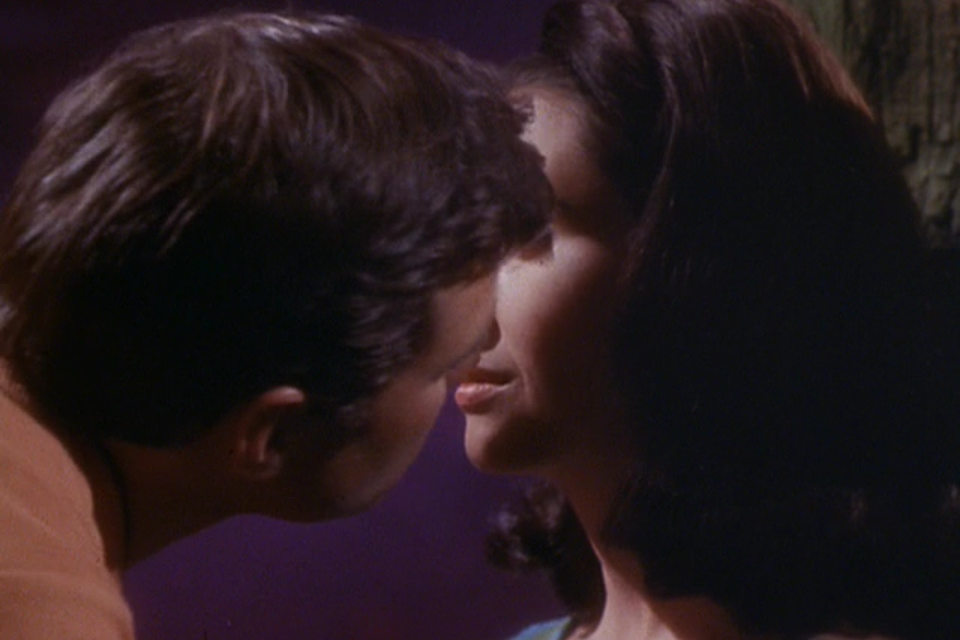
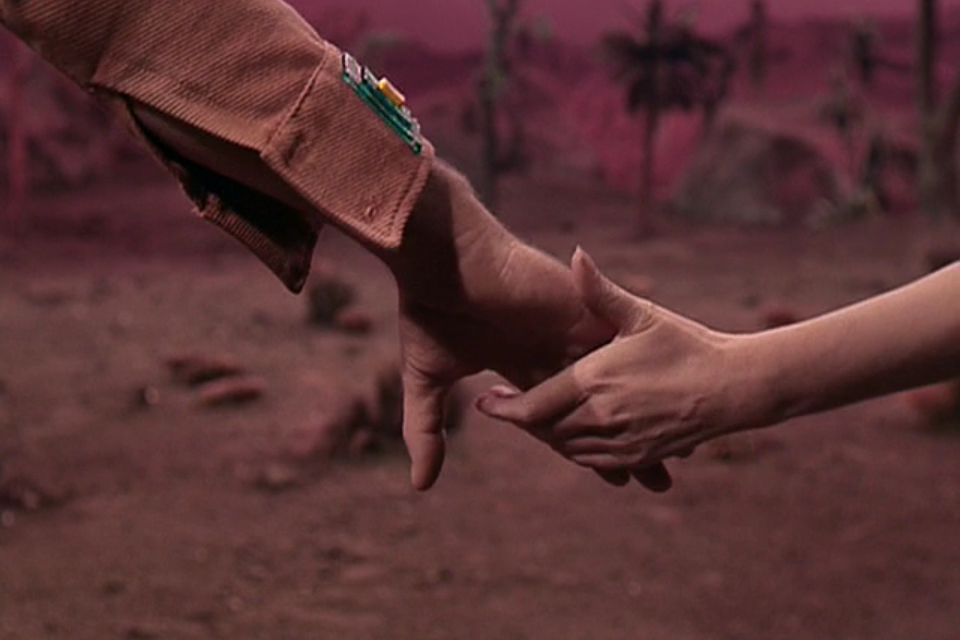
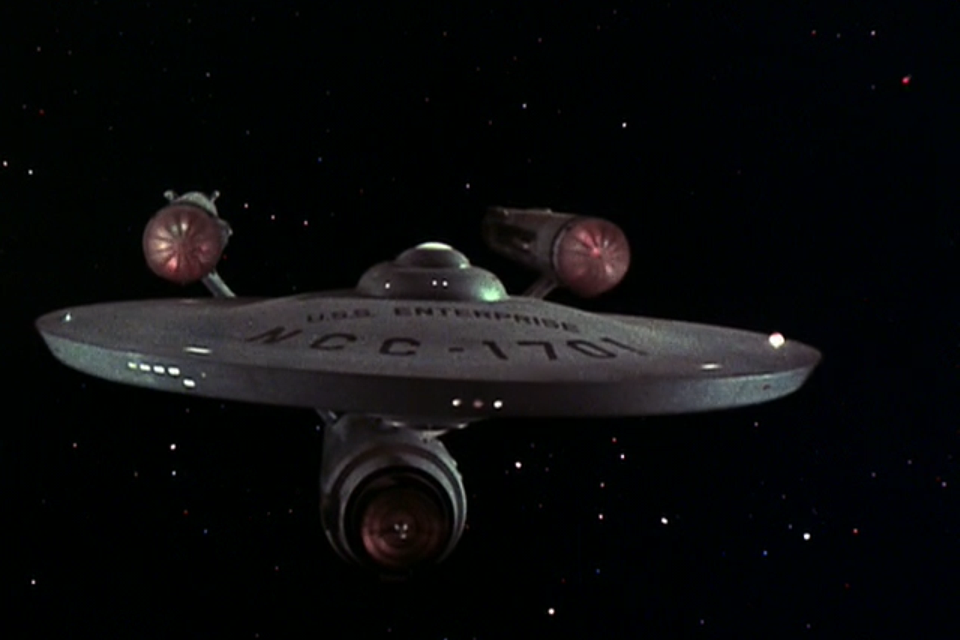
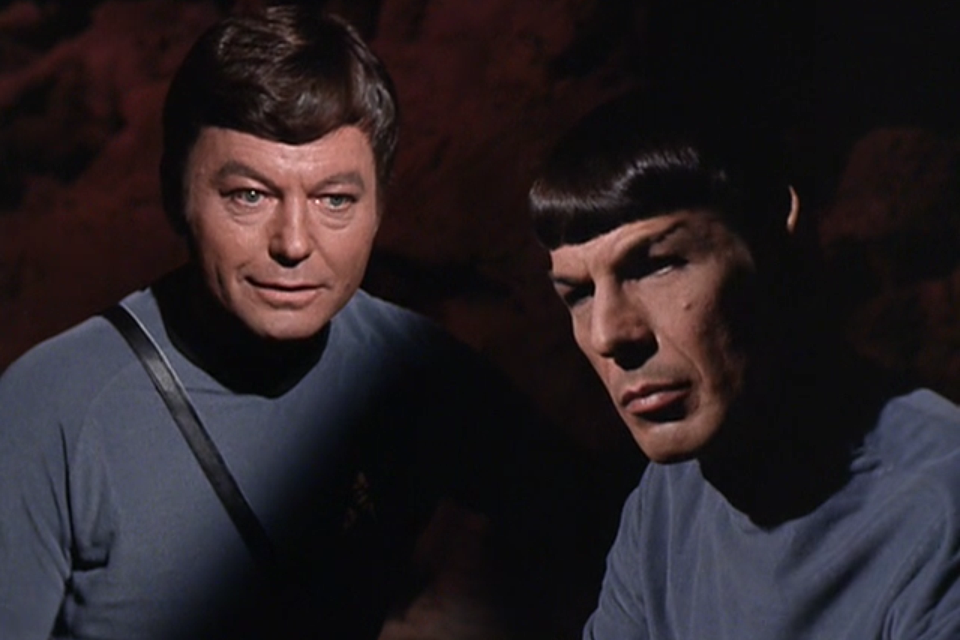
No comments:
Post a Comment